--Martin Luther
Fig. 1 I Always thought clothes were overkill
I loved Ridley Scott’s Kingdom of Heaven from my first viewing at the theatre, and it wasn’t because Orlando Bloom gets shirtless in it (that’s just one reason). With institutions like Liam Neeson and Jeremy Irons involved, as well as an uncredited Edward Norton performance and Ridley’s signature mise-en-scene, it’s a masterfully illustrated story about the folly of pride and the human necessity to embrace all nations as one human family.
Perfectly underpinning this multicultural theme is Harry Gregson-Williams’ rich tapestry of a musical score. It seamlessly weaves Celtic, Mediterranean, and Persian influences into a set piece that is earthly for its mix of instruments, yet otherworldly because it makes the many cultures responsible for the different styles feel as if they were never separated by land or sea. A favorite thread in this score is the angelic echoing vocals of ancient choral hymns. I noticed the simplicity set me at ease whenever I was studying or reading, and I wanted more.
A search for Gregorian chants on iTunes yielded my now favorite group Sequentia, an ensemble dedicated to resurrecting the canticles of medieval Europe. Both male and female voices in predominantly acapella performances transport me to a musical plateau of serenity. Whenever I listen, I can practically smell the incense and feel the warmth of the sun filtering through the stained glass in colored shafts of light. As a bonus treat, Sequentia likes to toss in a few instrumental pieces that showcase the sounds of traditional strings and woodwinds.
There’s something universal and profound surrounding them. Perhaps it’s the sheer grace of God, or just the incomprehensible Latin, but I prefer to think it’s the purity of devotion that imbues them with comprehensive appeal. They were performed to praise a higher existence, not to deride or condemn, but inform listeners of the deeds and love of God.
In Mary Doria Russell’s exquisite novel The Sparrow, a young man working in Arecibo for the SETI program discovers a signal sent through space and time from a star system a few short light years away. He realizes that it’s a song, which indicates intelligent life. Scientists, humanists, and a Jesuit priest are all brought together by that ethereal music, and all of them travel to this new world on the Jesuit organization’s dime. For the Jesuits, as an influential and financially capable organization in the story, the mission is about finding rare resources that can be brought back to fund their missions on earth. For each of the characters, the journey becomes a spiritual test as they attempt to discover the source of the songs on a strange new planet.
Reading the book, I was surprised how moved I was by the description of the SETI discovery and it had me thinking for days about how I’d react to such a significant event. Hearing a song from an alien world filtering down through the stars and vast chasm of space would be a singular spiritual moment for all humankind.
Earth itself has a diversity of music that might overwhelm an off-worlder first hearing it. Even if they only listened to the religious tracks, they’d be surprised at the variety. I certainly was.
Podcasts, movies and documentaries may not be alien sources, but they provided plenty of absorbing listening from perspectives I never knew existed. Here’s a spiritual playlist of some of my favorites:
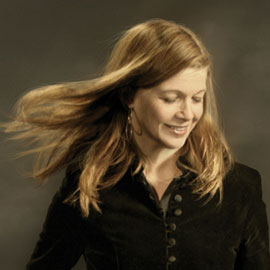
“There Is A Tree” by Carrie Newcomer
I heard an interview with this Quaker folk singer/songwriter on Interfaith Voices a while back, and was particularly impressed by the mystic quality of this song and her rich, earthy voice. It invokes a sense of the profound in everyday life, as does Carrie’s entire album “Geography of Light.” My other favorite song of hers, “Where You Been,” makes direct reference to many faiths, revealing the universality and playfulness of spirit.

“O Quam Mirabilis Est (Antiphona)” by Sequentia
The simplest, most angelic of Sequentia’s tracks. I have no clue what she’s saying, but it doesn’t beg translation. I feel the love, the dedication, the devotion, the joy. It’s beautiful in its musicality, heartbreaking in its purity.

“Hannukah on Hannukah” by Erran Baron Cohen
I read an article on Tabletmag.org (formerly Nextbook.org) on a newly released album in December 2008 that was created to “change Hanukkah’s reputation.” It’s called “Songs in the Key of Hannukah” and upon hearing it once through, I decided I could listen to it all year long. It’s composed by internationally acclaimed DJ Erran Baron Cohen, who cranks up the irony of his brother’s anti-Semitic characters by injecting a proud and somewhat fundamentalist Jewish flavor to this holiday album. Lighting the shamash and eating sufganiyot has never been so hip.

“Mul Mantra” by Snatam Kaur
Whenever I hear this song, I’m reminded of the long trip between New Orleans and Killeen, Texas with my sister and her husband. I stared out at the endless Texan grazing land and listened to the Sikhwithin podcast, where I first heard Snatam Kaur’s soothing voice. Turns out she’s something of a rockstar in Sikh circles, a California-born woman who performs kirtan devotional music on peace-promoting world tours. The Mul Mantra is the essence of the Guru Granth Sahib, the official Sikh text, and within its few words, contains dense layers of spiritual concepts. Snatam is such a gifted singer that simply hearing her version of the chant without any previous knowledge of Sikh theology, one can sense the depth and emotion and history suffusing it.

“Welcome Home” by Hamza Peréz
Featured in the excellent PBS POV documentary New Muslim Cool, this inspirational rap serves as a primer for leading a righteous life after leaving jail. Informed by Hamza’s own story as a Puerto Rican ex-drug-dealer in the streets of Pittsburg who converted to Islam, this song cuts through to the core of spiritual conversion: to change your life for the better, forever. The film demonstrates the injustices visited upon Hamza’s mosque community as well as the strength of brotherhood and sisterhood they have to endure life’s hardships, and how Islam always guides them toward kindness and standing up for themselves.

“I Will Be Light” by Matisyahu
Matthew Paul Miller, known by his Hebrew name Matisyahu, was influenced through a youth equally defined by Bob Marley and yeshiva, and his music seamlessly sews together reggae-flavored instrumentals and vocals with Hasidic Jewish theological themes. Another Interfaith Voices discovery, this song, with its “dreadlocks to sidelocks” backstory, struck me as a powerful testament to the dynamism of religion and how beautifully it can evolve and inspire each new generation.

“Jesus Is Just Alright With Me” by The Doobie Brothers
I just really love this song. It’s very catchy. Its spiritual message doesn’t detract from its pop cred at all. Anyone can listen to it, whether you’re Christian or not, because it’s stripped of dogma. It’s a simple story of finding Jesus as a friend, and no matter that I’m a Buddhist, I can still agree that Jesus is just alright.

“Pal Pal Hai Bhaarii” by A.R. Rahman
This one is on the soundtack of the excellent hindi film Swades, and it’s from the scene featuring the Ramlila, the traditional play about Lord Ram’s life and adventures. The lyrics are based on the classical storytelling style and as usual, A.R. Rahman’s underlying score defines itself as anything but simple accompaniment. Find the translation of the story on Bollywhat.com and you’ll enjoy the full impact of the lyrics, both dramatic and mystical.

“Sacred Stones” by Sheila Chandra
Oddly enough, I first heard this song on an episode of Queer As Folk, and it was played during a slow-motion sequence meant to give some pause to the usual fast-paced beats that pump through the heart of Babylon, the characters’ nightclub of choice. I noted its singularity among other songs featured in the show and discovered the meditative quality it had. It’s just the kind of song you’d hear playing in the background at a yoga class, but it constitutes more than your standard ambient vaguely South Asian-flavoured white noise. It combines a handful of religious chants in one song to exemplify the tonal, and, incidentally, the spiritual similarities among them. Listen closely.

“Muestro Senyor Elohenu” by Yasmin Levy
Listening to Vox Tablet one day at work, I heard the story of a woman whose father painstakingly preserved thousands of traditional Sephardic songs sung in Ladino—a Hebrew-Spanish language, an Iberian version of Yiddish. Having a Puerto Rican background myself, and a pretty sharp ear for music, I was struck by the instant visceral reaction I had to her voice. In her interview, she described how her feet stood in three worlds—Israel, Arabia, & Spain—and her multicultural influence was so evident in her songs, the unification of which brought me to tears. It still does, every time. Her music, especially this song, is a manifesto for the brotherhood of human life.

“Twilight and Shadow” by Howard Shore
The Lord of the Rings trilogy is no doubt three of the most spiritual and soul-searching films of any generation, and the music reflects themes as diverse as the races of Middle Earth. I find this track one of the most essential because it distills the complex bittersweet tone of the entire story into a sad but hopeful hymn that you could drop into a list of songs by Sequentia and not know the difference.


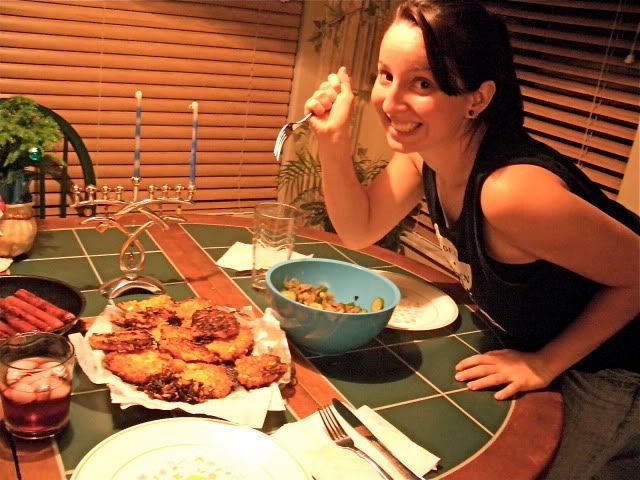

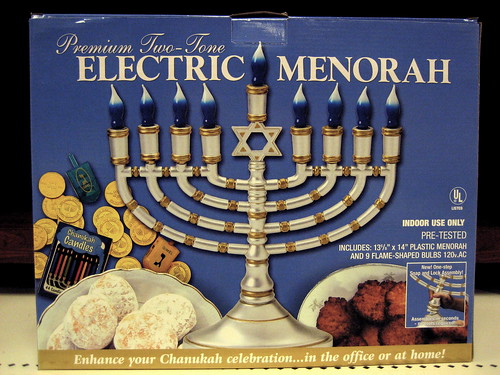


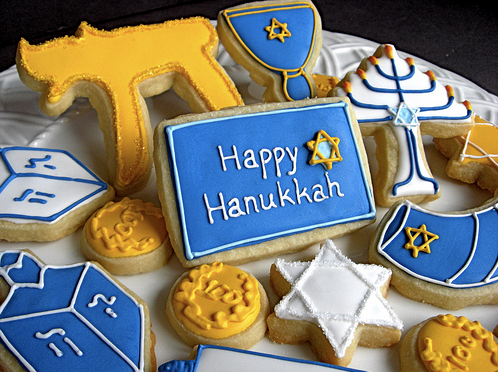

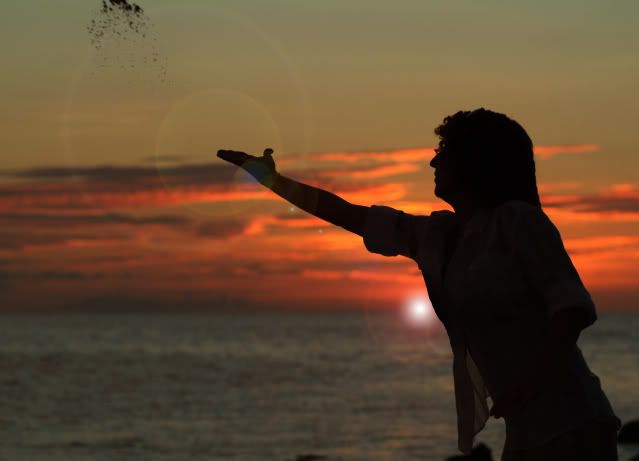
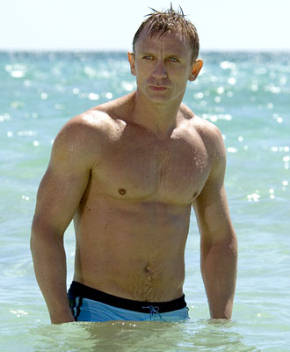




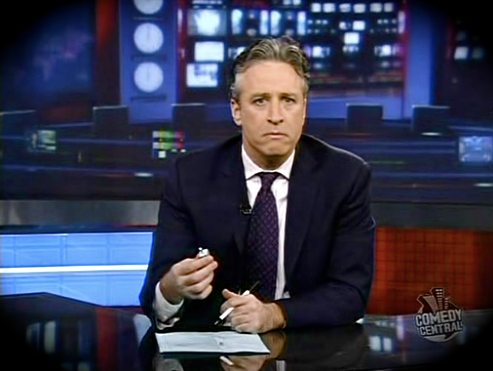
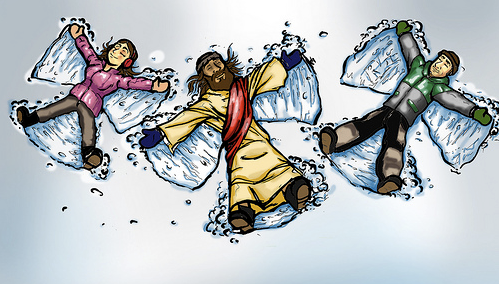

![santa_buddha[1] by jjon31.](http://farm4.static.flickr.com/3283/3118619444_c21085dc14.jpg)





